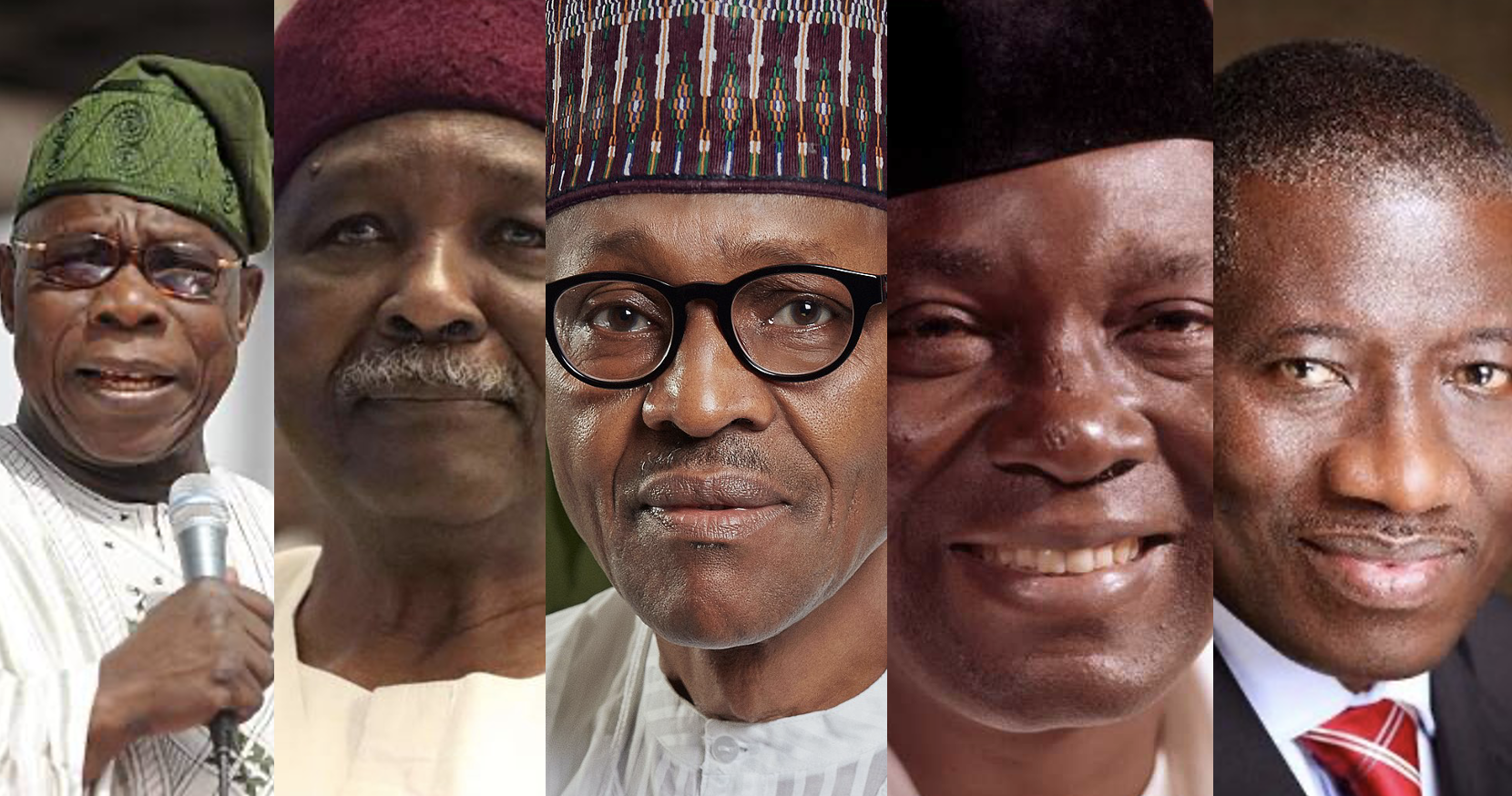Nigeria, a country rich in cultural heritage and natural resources, has been shaped by the leadership of several outstanding presidents.
Over the years, certain leaders have stood out for their significant contributions to the nation’s economy, earning the respect and admiration of Nigerians. This article focuses on these celebrated Nigerian presidents who left a lasting impact through their visionary economic policies and reforms.
1. Olusegun Obasanjo (1999-2007)
Economic Reforms and Debt Relief
Olusegun Obasanjo is widely celebrated for his substantial contributions to Nigeria’s economic development during his tenure. His administration implemented significant economic reforms, including the introduction of the National Economic Empowerment and Development Strategy (NEEDS), which aimed at poverty reduction, wealth creation, and value re-orientation.
View this post on Instagram
Debt Cancellation
One of Obasanjo’s most notable achievements was negotiating the cancellation of Nigeria’s external debt. His efforts led to Nigeria’s Paris Club debt relief in 2005, significantly reducing the country’s debt burden and freeing up resources for economic development and social programs.
2. Yakubu Gowon (1966-1975)
Reconstruction and Rehabilitation
After the Nigerian Civil War, Yakubu Gowon’s administration focused on reconstruction and rehabilitation. His government implemented the 3R’s policy: Reconstruction, Rehabilitation, and Reconciliation, which aimed to rebuild the war-torn nation and restore economic stability.
Creation of States
Gowon’s tenure also saw the creation of 12 states from the four regions, aimed at bringing governance closer to the people and promoting balanced economic development across the country.
3. Nnamdi Azikiwe (1963-1966)
Pioneer of Economic Nationalism
Dr. Nnamdi Azikiwe, Nigeria’s first president, is celebrated for his role in promoting economic nationalism. His vision for an independent and self-reliant Nigeria laid the foundation for future economic policies that prioritized national interests and development.
Educational Reforms
Azikiwe’s focus on education as a driver of economic development led to the establishment of several institutions and initiatives aimed at improving access to quality education. His belief in education as a tool for empowerment and economic progress remains a lasting legacy.
4. Aguiyi Ironsi (1966)
Unification Decree
Although Aguiyi Ironsi’s tenure was brief, his Unification Decree aimed at centralizing Nigeria’s governance structure, which was intended to streamline administration and foster national unity. His efforts laid the groundwork for subsequent economic and administrative reforms.
5. Tafawa Balewa (1960-1966)
Foundation of Economic Policies
Sir Abubakar Tafawa Balewa, Nigeria’s first and only Prime Minister, is remembered for his role in setting the foundation for Nigeria’s economic policies post-independence. His administration prioritized agricultural development and industrialization to diversify the economy.
Infrastructure Development
Balewa’s tenure saw significant investments in infrastructure, including the construction of major roads, schools, and hospitals, which facilitated economic growth and improved the quality of life for many Nigerians.
6. Umaru Musa Yar’Adua (2007-2010)
7-Point Agenda
Umaru Musa Yar’Adua’s presidency, though short-lived, was marked by his dedication to economic and infrastructural development. His administration introduced the 7-Point Agenda, focusing on critical areas such as power and energy, food security, wealth creation, transportation, land reforms, security, and education.
Amnesty Program for Niger Delta Militants
Yar’Adua’s introduction of the Amnesty Program for militants in the Niger Delta was a significant step towards stabilizing the region. This program helped to reduce unrest, allowing for increased oil production and contributing to economic stability.
7. Goodluck Jonathan (2010-2015)
Economic Growth and Diversification
Goodluck Jonathan‘s tenure is remembered for its focus on economic growth and diversification. His administration oversaw a period of robust economic expansion, making Nigeria the largest economy in Africa by GDP in 2014.
Agricultural Transformation Agenda
Jonathan’s Agricultural Transformation Agenda aimed to revitalize the agricultural sector, reduce food imports, and create jobs. This initiative led to increased local production and a more self-sufficient agricultural industry, contributing significantly to the economy.
8. Muhammadu Buhari (1983-1985, 2015-2023)
Anti-Corruption Drive
Muhammadu Buhari’s commitment to fighting corruption has been a hallmark of his leadership. His administration’s anti-corruption measures have aimed to improve governance and attract foreign investment, thus bolstering economic confidence.
View this post on Instagram
Economic Recovery and Growth Plan (ERGP)
Buhari’s administration launched the Economic Recovery and Growth Plan (ERGP) in 2017, focusing on restoring growth, investing in people, and building a globally competitive economy. This plan addressed critical areas such as agriculture, manufacturing, and services, aiming to diversify the economy and reduce dependence on oil.
These celebrated Nigerian presidents have left an indelible mark on the nation’s economic landscape. Their visionary policies and reforms have contributed to Nigeria’s growth and development, earning them the admiration and respect of Nigerians.
Wha are your thoughts?
























